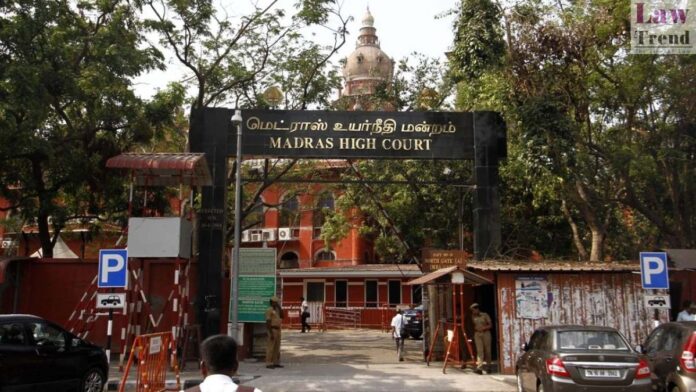Madras High Court has declared unconstitutional a 2010 amendment which brought Waqf properties under the ambit of the Tamil Nadu Public Premises (Eviction of Unauthorised Occupants) Act of 1976.
This amendment empowered the Tamil Nadu Waqf Board Chief Executive Officer (CEO) to order the eviction of encroachers in his/her capacity as Estate Officer.
The first bench of the Madras Hugh Court comprising Chief Justice Sanjay V. Gangapurwala and Justice D. Bharatha Chakravarthy on Wednesday declared the 2010 amendment made by the state legislature repugnant to the Waqf Act of 1995.

It may be recalled that the Waqf Act of 1995 is a Central legislation.
The judges held that encroachers of Waqf properties could be evicted only by Waqf tribunals constituted pursuant to an amendment made to the Central legislation in 2013.
The Bench refused to accept the state government’s contention that the state law as well as the Central law could co-exist with the Tamil Nadu Waqf Board CEO being given the option of ordering eviction
The division bench said that the original provisions of the Waqf Act, 1995 were not stringent enough to deal with encroachment or illegal occupation of waqf properties.
Therefore, the Sachar Committee recommended that the Public Premises (Eviction of Unauthorised Occupants) Act, 1971 should be applied to waqf properties too, as these properties were also for the benefit of the public at large.
Though Tamil Nadu brought in the 2010 amendment following the recommendation, many other states did not do so.
Parliament amended the Waqf Act in 2013 to ensure uniformity across the country in the eviction of encroachments.
The 2013 amendment clearly stated that the encroachers of Waqf properties could be evicted only as per procedures prescribed under the Central enactment.
The division bench said that since the 2013 amendment to the Central law was subsequent to the 2010 amendment to the state law, it should be presumed that Parliament was well aware of the state amendment and yet, it had consciously amended the Waqf Act of 1995.
Also Read
The bench said, “It can be seen that Parliament wanted to provide effective mechanisms with respect to recovery of possession.”
In the concluding remarks, the division bench of the Madras High Court said, “The Central Act is thus made as an exhaustive code on the subject. Therefore, the state enactment is repugnant to the Waqf Act of 1995 as amended in the year 2013.”







